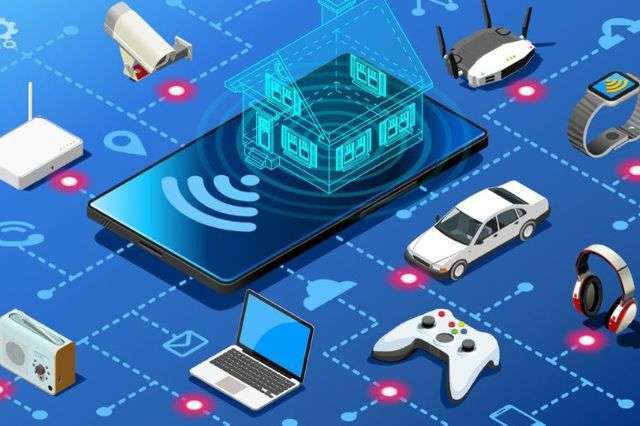How the Internet of Things Can Improve Your Business
The Internet of Things (IoT) is one of the latest trends transforming many businesses. It has already altered the way professionals work and how people do things. In the business world, IoT has helped many companies save on operating costs, improve productivity, and enhance workplace safety. Furthermore, it helps to understand consumer behaviours, allowing businesses to improve their services. Here are many other ways the Internet of Things can improve your business.
Image: SecureList
1. Can Help to Monetise Data
Transforming IoT data into a product to sell to others is becoming a trend over recent years, and many businesses are considering it for additional revenue streams. While selling data is not a new concept, the consumption of data to sell it is. Given the thousands of interconnected devices that continuously gather data, there’s an untapped market opportunity that businesses are yet to take advantage of.
Every business knows that information is valuable, especially for those companies wanting to venture towards a new industry or improve in their current area. However, they do not only need raw data that the IoT devices collect. Unorganised data will not mean much. Only refined data that can identify patterns is valuable.
An example of how a business can monetise IoT is when a company sells a smart device for a specific application and needs to monitor it to gather essential data or information, such as causes of malfunction and energy efficiency. They can use the data that the IoT collects through multiple devices in various situations before packaging it into something valuable that manufacturers and service firms need to improve their products or services.
2. Can Help with Asset Management
For most manufacturing companies, only the workers know the equipment’s overall health condition. Investing in a centralised system is the best way to keep up with maintenance and prevent machine breakdowns. On the other hand, over-maintained machinery can also lead to an increased maintenance cost.
By investing in smart sensors and the right software, manufacturing companies can remotely monitor the overall health of the equipment. Through IoT, they can create a digital twin that serves as the equipment’s virtual representation. Digital twins will make it easier for companies to visualise problems and simulate what could happen in specific scenarios.
IoT technologies are data-driven devices that use sensor devices to gain insights that reflect the overall scenario of factories, empowering businesses to improve productivity through reduced machine breakdowns. The real-time data that IoT can gather provide businesses with ideas on when to conduct maintenance through illustrative reports, which enable a quick analysis to achieve better results.
With the help of IoT, the software can detect if a breakdown is likely to occur, which means fewer onsite visits and production schedules will be more accurate. In addition, maintenance will be more proactive, and companies will not miss out on orders due to unplanned downtime.
3. Can Help to Reduce Costs
The Internet of Things (IoT) has positively impacted various industries, revolutionising how businesses operate while allowing them to improve efficiency and reduce costs in many ways. To help companies save money even further, they should focus on IoT recruitment to bring in professionals who can help them integrate IoT devices to reduce operational costs.
IoT solutions can help streamline existing business processes across various industries, allowing companies to minimise downtime and save money on operational costs. It can develop optimised workflows through automation, which lessens repetitive tasks and facilitates the optimal utilisation of company resources and machinery. Optimisation can help avoid wasted labour hours in organisations, allowing for a more efficient business operation.
Studies show that more than 80% of IoT-powered organisations were able to reduce expenditures and boost productivity. Further studies reveal that companies adopting IoT have seen a significant increase in profitability.
Companies can integrate IoT into every device, machinery, asset, and equipment, linking them in a single network. Through sensors, businesses can keep track of equipment and conduct continuous maintenance, helping to reduce the need to replace defective equipment, thereby saving significant money.
4. Can Increase Productivity
IoT helps businesses increase productivity and inefficiency in various ways. One of these is automating tasks and minimising the need to do things manually, such as inventory management and data entry. In addition, IoT-enabled devices can offer real-time insights to help businesses optimise their operations.
With thousands of devices now connected to the internet, producing all kinds of information, managing the data can be a real challenge for many companies. IoT can help make things easier by deciphering what data is essential to the company. With IoT, everyone in the organisation can access analytics tools to make sense of the information gathered, significantly increasing productivity.
IoT sensors are essential for collecting data for analysis. By analysing data compiled from the sensors, businesses can devise solutions that enhance productivity and avoid costly downtime, thereby reducing operational expenses.
5. Can Bring in New Business Opportunities
The Internet of Things (IoT) has left a lasting impact on technologies for business, playing significant roles in various industries. It facilitates tech integration to promote digital transformation. As a result, IoT adoption in many companies has skyrocketed over the recent years.
Thanks to IoT technologies, businesses can utilise every data point to achieve growth and optimise business processes, leading to more business opportunities. IoT can connect to software, hardware, and AI for deeper analytics and better insights, helping businesses to catapult their operations.
In fact, hundreds of businesses were able to discover new opportunities with IoT. It opens up new product lines and revenue models based on emerging patterns. For instance, IoT allows insurers to compute insurance premiums according to customers’ driving habits. Meanwhile, retailers can plan their level of inventory and store displays by analysing consumer behaviours.
Those in marketing can use IoT-based technologies to gather insights about their target consumers. It helps them adapt to changes and develop products that can be a big hit in the market. IoT has also opened opportunities to improve supply chain and logistics by providing detailed insights on the parcel’s movement, an effective way to engage and delight consumers.





